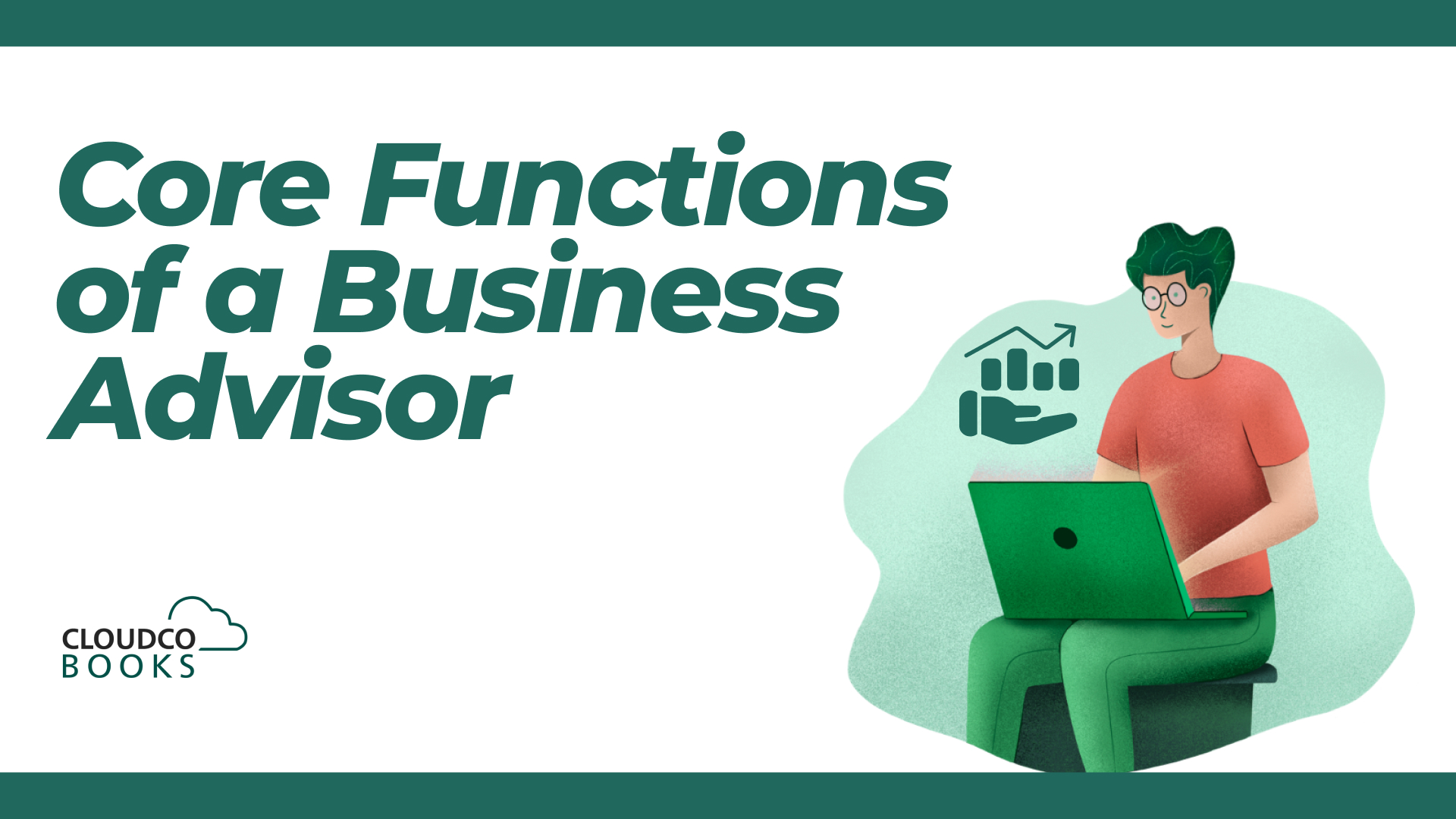Running a business is rewarding, but it also comes with endless challenges. From managing cash flow and hiring staff to navigating taxes, regulations, and growth opportunities, the road to success can feel overwhelming. Many business owners find themselves asking: Am I making the right decisions? Is there a smarter way to grow?
This is where a business advisor becomes invaluable. Advisors act as trusted guides, helping you avoid costly mistakes, improve efficiency, and create a clear roadmap for success. Whether you run a small start-up or a well-established company, the right advisor can transform the way you work.
In this detailed guide, we’ll break down exactly what business advisors do, why they matter, and how to choose the right one for your business.
Who Are Business Advisors?

At the simplest level, a business advisor is an expert who provides professional guidance to help businesses improve performance. But in reality, they are much more than that.
They are:
- Strategists who help you see the big picture.
- Problem-solvers who identify inefficiencies and offer solutions.
- Financial guides who make sure your numbers work.
- Mentors who hold you accountable and push you toward your goals.
Business advisors usually have years of experience in their fields — often as entrepreneurs, accountants, lawyers, or senior executives. They combine this expertise with an outside perspective to help you make better, faster, and more confident decisions.
Types of Business Advisors

Not all advisors are the same. Depending on your needs, you may work with one or a mix of the following:
- Financial Advisors: Focus on budgeting, forecasting, debt management, and cash flow.
- Strategic Advisors: Help you define long-term goals, growth strategies, and vision.
- Operational Advisors: Analyze processes, reduce waste, and boost productivity.
- Legal Advisors: Ensure compliance, contracts, and regulatory obligations are met.
- Tax & Accounting Advisors: Handle tax planning, bookkeeping, and financial reporting.
- Marketing & Sales Advisors: Guide branding, customer engagement, and digital marketing.
- Succession & Exit Advisors: Plan for leadership transitions, business sales, or retirement.
- Industry-Specific Advisors: Provide niche expertise (e.g., technology, healthcare, manufacturing).
Pro Tip: Small businesses often benefit most from multi-disciplinary advisors who combine financial, operational, and strategic insights.
Core Functions of a Business Advisor

So, what exactly do business advisors do on a day-to-day basis? Here are their main functions:
1. Strategic Planning & Goal Setting
Advisors help you answer questions like:
- Where do you want your business to be in 5 years?
- What milestones should you achieve in the next 12 months?
- How do you align your team and resources with this vision?
They use tools such as SWOT analysis, business modelling, and performance benchmarks to create a realistic yet ambitious roadmap.
2. Financial Management & Cash Flow Optimization
A healthy cash flow is the lifeblood of any business. Advisors step in to:
- Build detailed budgets
- Monitor income vs. expenses
- Identify areas for cost savings
- Improve invoicing and collections
- Explore funding options (loans, investors, grants)
With their help, you gain financial clarity and avoid unexpected shortfalls.
3. Risk Management & Compliance
Every business faces risks, legal disputes, market downturns, cyber threats, or compliance issues. Business advisors:
- Review contracts and agreements
- Ensure you follow industry regulations
- Create contingency and risk-mitigation plans
- Advise on insurance and liability protection
This proactive approach keeps you legally safe and operationally secure.
4. Operational Efficiency
Do you feel like you’re working harder but not getting results? Advisors pinpoint inefficiencies by analyzing your processes, supply chain, and team performance. Then they recommend:
- Automation tools
- Improved workflows
- Training programs
- Better supplier contracts
The result? Higher productivity, reduced waste, and more profit.
5. Growth & Expansion Guidance
Whether you’re launching a new product, entering a new market, or scaling operations, advisors provide the expertise to grow wisely. They support you with:
- Market research and competitor analysis
- Sales and marketing strategies
- Partnerships and joint ventures
- International expansion planning
They don’t just help you grow, they help you grow sustainably.
6. Succession & Exit Planning
Planning to retire, sell your business, or hand it down to family? Advisors create smooth succession and exit strategies that:
- Maximize the value of your business
- Reduce tax liabilities
- Ensure leadership continuity
- Protect your legacy
Without proper planning, transitions can create chaos. Advisors ensure everything runs seamlessly.
7. Accountability & Mentorship
Sometimes, the most valuable role of an advisor is simply being your accountability partner. They check in regularly, review progress, and challenge you to stay focused.
For solo entrepreneurs or family businesses, this can be the difference between staying stagnant and moving forward with confidence.
Real-World Impact: Why Businesses Need Advisors
The impact of a good advisor goes beyond numbers. Here’s what they bring:
- Higher profitability: Through better financial management and pricing strategies.
- Faster growth: Thanks to focused roadmaps and efficient operations.
- Reduced risks: By ensuring compliance and planning for worst-case scenarios.
- Peace of mind: Knowing an expert has your back.
- Resilience in crises: Advisors guide you through downturns or sudden disruptions.
Example Case:
A small e-commerce startup struggled with high overheads and poor cash flow. After hiring a business advisor, they streamlined inventory, renegotiated supplier contracts, and implemented a targeted digital marketing strategy. Within a year, revenue grew by 40% and expenses dropped by 20%.
What Working with a Business Advisor Looks Like
Here’s the typical process:
- Initial Consultation: Understanding your goals, pain points, and vision.
- Assessment Phase: Reviewing financials, operations, and team structures.
- Strategy Creation: Developing a roadmap with actionable steps.
- Implementation Support: Helping you put plans into action.
- Monitoring & Review: Regular progress check-ins, KPI tracking, and adjustments.
This relationship evolves, often starting as problem-solving and eventually becoming a long-term partnership.
How Much Does a Business Advisor Cost?
The cost depends on experience, services, and scope of engagement:
- Hourly Rate: $100–$500+, depending on expertise.
- Monthly Retainer: From $300/month for basic support, up to several thousand for comprehensive advisory.
- Project-Based: Fixed fees for one-off projects like business plans or restructuring.
- Performance-Based: Payment tied to results achieved.
While it may seem like an expense, the ROI often outweighs the cost. Think of it as an investment in growth, efficiency, and risk reduction.
How to Choose the Right Business Advisor

With so many options, choosing the right advisor is crucial.
Checklist for Selecting an Advisor:
- Proven track record in your industry
- Transparent about fees and expectations
- Strong communication and listening skills
- Offers tailored solutions (not one-size-fits-all)
- Provides references or case studies
- Shares your values and vision
Red flags include vague promises, lack of a clear strategy, or pressure tactics.
Why Choose Cloud Co as Your Business Advisor?
While there are many advisors out there, not all bring the same level of expertise, transparency, and long-term value. Cloud Co stands out as a trusted partner for businesses looking to grow smarter and faster.
Here’s what makes Cloud Co different:
- Holistic Advisory Services: Cloud Co goes beyond traditional business consulting. From strategic planning and financial advisory to tax compliance, legal guidance, and succession planning, they cover every angle of your business.
- Proven Track Record: With years of experience supporting small, medium, and large enterprises, Cloud Co has helped countless businesses streamline operations, cut costs, and unlock new growth opportunities.
- Tailored Strategies: No two businesses are alike. Cloud Co takes time to understand your industry, challenges, and goals before designing a personalized roadmap.
- Technology-Driven Solutions: Leveraging cloud-based tools and modern analytics, they provide real-time insights that help you stay ahead of the competition.
- Dedicated Support: Cloud Co isn’t just an advisor you meet once a quarter. They become an extension of your team, providing accountability and consistent guidance.
Whether you’re a startup finding your footing or an established company ready to scale, Cloud Co provides the expertise, clarity, and confidence to help you succeed.

